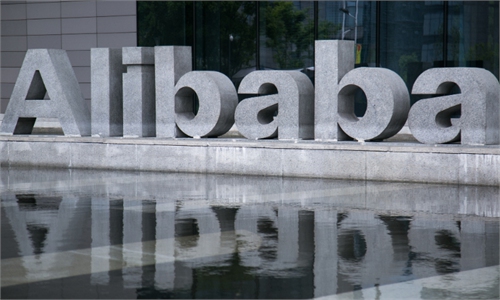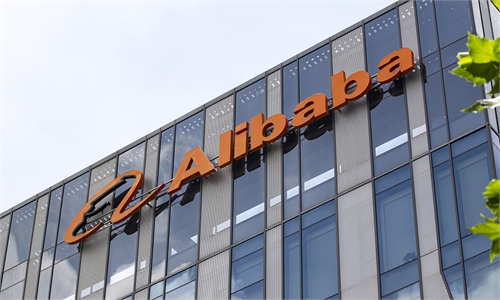Alibaba restructuring bodes well for China’s private economy: experts
Businesses of all types to see significant rebound in 2023

Alibaba's headquarters in Hangzhou, East China's Zhejiang Province Photo: cnsphoto
Alibaba Group's newly announced restructuring plan will transform it into a company that largely operates assets and capital, which is expected to make all of its business divisions more agile and facilitate decision-making facing rapid market changes, Alibaba CEO Daniel Zhang Yong said on Thursday.
The conglomerate's historic transformation - which comes at a critical moment of China's economic recovery - sends a strong signal that it's proactively making internal reforms to remove obstacles hindering growth, which is also "a shot in the arm" for China's private economy, experts said.
The restructuring is "more necessary and more difficult than ever," but it's hoped that the change will further release the vitality of Alibaba's business units and its employees to boost innovation, Zhang said in a conference call on Thursday.
He said that Alibaba began laying the groundwork for the restructuring during the past several years.
"We believe the market is the litmus test, and each separate business will have the flexibility to raise capital and pursue their own IPOs," Alibaba CFO Toby Xu Hong said at the conference. After the divisions go public, Alibaba will continue to evaluate the strategic importance of each and decide whether or not to retain control of it, he said.
Alibaba announced on Tuesday that it will split its businesses into six main units, covering cloud intelligence, Taobao Tmall e-commerce, local services, Cainiao smart logistics, global digital commerce and digital media and entertainment.
The restructuring is being driven by fierce market competition from rivals including JD, Tencent and Huawei, Lu Zhenwang, founder of Shanghai Wanqing Commerce Consulting, told the Global Times on Thursday.
"Under the existing company structure, some of Alibaba's businesses lack competitive edge. For example, its local services face competition from Meituan, whereas Huawei's and Tencent's rapidly growing cloud businesses pose a challenge for Ali Cloud," he said.
Cao Heping, an economist at Peking University, told the Global Times that Alibaba's structure overhaul is aimed at achieving higher growth.
Alibaba's restructuring has drawn much attention, as it comes in conjunction with the recent appearance of founder Jack Ma Yun in Hangzhou, home to Alibaba Group.
"Ma's return shows that he has not only come back with a 'knife' for internal reform, but also with strengthened confidence and expectations that Alibaba could better accommodate itself to the government's new policies on promoting the development of the private economy," Lu said.
During this year's two sessions, Chinese Premier Li Qiang said that the authorities will create a level playing field for all kinds of business entities and further support private enterprises in strengthening business.
"The private sector will enjoy a better environment and broader space for development," Li said, stressing that China's commitment to the development of the private sector is unequivocal.
In response to the premier's call, Chinese government agencies and provinces are moving fast to shore up the development of the private sector.
To boost the development of the private economy, the National Development and Reform Commission, the country's top economic planner, held a seminar soliciting advice from academia, including the Party School of the Central Committee of the Communist Party of China and Tsinghua University.
In South China's Guangdong Province, multiple cities including Zhongshan asked officials to give their phone numbers to entrepreneurs and encouraged them to actively communicate with entrepreneurs, hear their appeals and find solutions, according to media reports.
Small and micro-sized private enterprises, which have been hit by the US-launched trade war against China and the pandemic, are predicted to recover rapidly in 2023, Chinese economists say.



